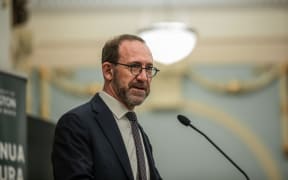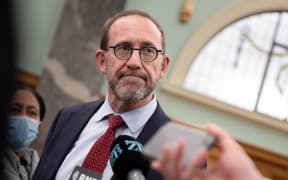
New Zealand does not have enough psychologists and psychiatrists, experts say Photo: 123RF
Doctors running a programme providing mental health resources through general practices say it is not putting a strain on the stretched specialist services workforce.
Leading mental health specialists say New Zealand is severely under-staffed in psychologists and psychiatrists, and the country needs to double both to be able to meet patient demand.
The Access and Choice programme aims to make mental health services more accessible by putting them in general practices, and has been running for three years.
But critics say the programme takes staff from secondary services, moving the workforce strain elsewhere in the healthcare system.
A Mental Health Commission report, looking at three years of the initiative, said almost 60 percent of its Heath Improvement practitioners and 40 percent of its health coaches had previously worked in the mental health and addiction sector.
"The experience and knowledge of these staff are undoubtedly valuable to the Integrated Primary Mental Health and Addiction services; however, the additional positions will continue to stretch a limited workforce in the absence of a broader mental health and addiction workforce plan."
Another Mental Health Commission report said vacancies in specialist mental health doubled between 2018 and 2022, where there was an increase in overall positions, but a drop in the percentage of clinical roles.
Access and Choice psychiatrist Dr David Codyre told Morning Report the programme was making services accessible with a relatively low impact on the workforce, so was helping more than it was hurting the situation.
Almost half of those in the Auckland region enrolled at general practices could now use Access and Choice, and the programme had 281 clinicians out of about 7500 in the country's total workforce, he said.
"We are only about 5 percent of the combined mental health clinician workforce. And in the Auckland region we've been really concerned that we don't deplete secondary services, so we've been tracking where our workforce clinicians come from," Codyre said.
"A small number" of their workers came from secondary services, ranging from about 25 to 30 percent at different times, he said: "It's a tiny part of the overall workforce."
Instead, the most significant factors putting pressure on mental health staff availability were the ageing workforce, with significant numbers retiring or soon to retire, and losing workers to Australia, Codyre said.
"We, like the whole sector, face workforce challenges, so that's been our big limiting step in rolling out this programme."
A recent review of the first stage of Access and Choice had been positive, he said.
"It's providing great experience, and people really value the service, their feedback's very positive and also delivering good outcomes in terms of improved overall well-being. So overall we're feeling it's a pretty positive story here.
"Access rates are very good ... over 6 percent of the population in practices are being seen in any one year, and in the case of Māori that's over 8 percent - and considering that's a high need group that's good news because people are accessing it according to need."






